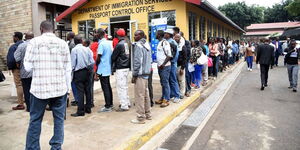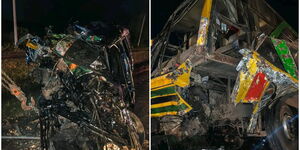Amid a looming shake-up in the matatu industry, key industry players within the sector have come out to criticise a raft of new regulations, including a proposed cashless system.
Secretary General of the Matatu Association, Wilfred Bosire, came out to criticise the latest directives, which will require matatus to adopt a cashless fare system while following stricter operating procedures within the Central Business District (CBD).
Bosire claimed that while the regulations looked good on paper, they exhibited a worrying misunderstanding of how the matatu sector operates.
“We feel like that document is ill-intended,” Bosire said, referring to the official regulations. “Cashless is not easy to operate because the drivers and conductors are given targets to meet on a daily basis.”
The Secretary General particularly took issue with the push for cashless payments, which he claims appears to be a modern solution but, in reality, ignores the day-to-day realities of the matatu industry on the ground.
Bosire claims the rampant corruption in the matatu sector makes it almost impossible to adopt the cashless system, since staff have daily remittance targets.
"There is always the issue of corruption. If you don't have liquid cash, the victimisation of conductors is very high,” he explained.
“Corruption is supported because of the punitive laws they want to bring. For example, if the regulation says if you fail to meet a certain target, you'll be fined KSh50,000, what is stopping someone from giving authorities KSh1,000 and walking free?” he asked.
Bosire warned that the cashless system, which was initially tried in 2014, would only open more room for bribery and extortion while undermining potential gains in the matatu industry.
His remarks came after the Nairobi County government unveiled several policies to bring more sanity to the transport sector within the CBD. Among the measures included is banning loud music inside matatus while in the city centre.
Another landmark regulation is a requirement for touts to use placards to indicate the matatu's route, instead of the typical shouting used to attract passengers.
The county also proposed a 10 p.m. terminal curfew to allow for cleaning operations, but Bosire argues that all these regulations are not new and are designed to generate revenue rather than improve the sector.
He went on, “Cashless has several challenges, and it is not that we have not tried it before. The worst thing we are doing is entertaining ideas of people who are here to make money, not support businesses.”












